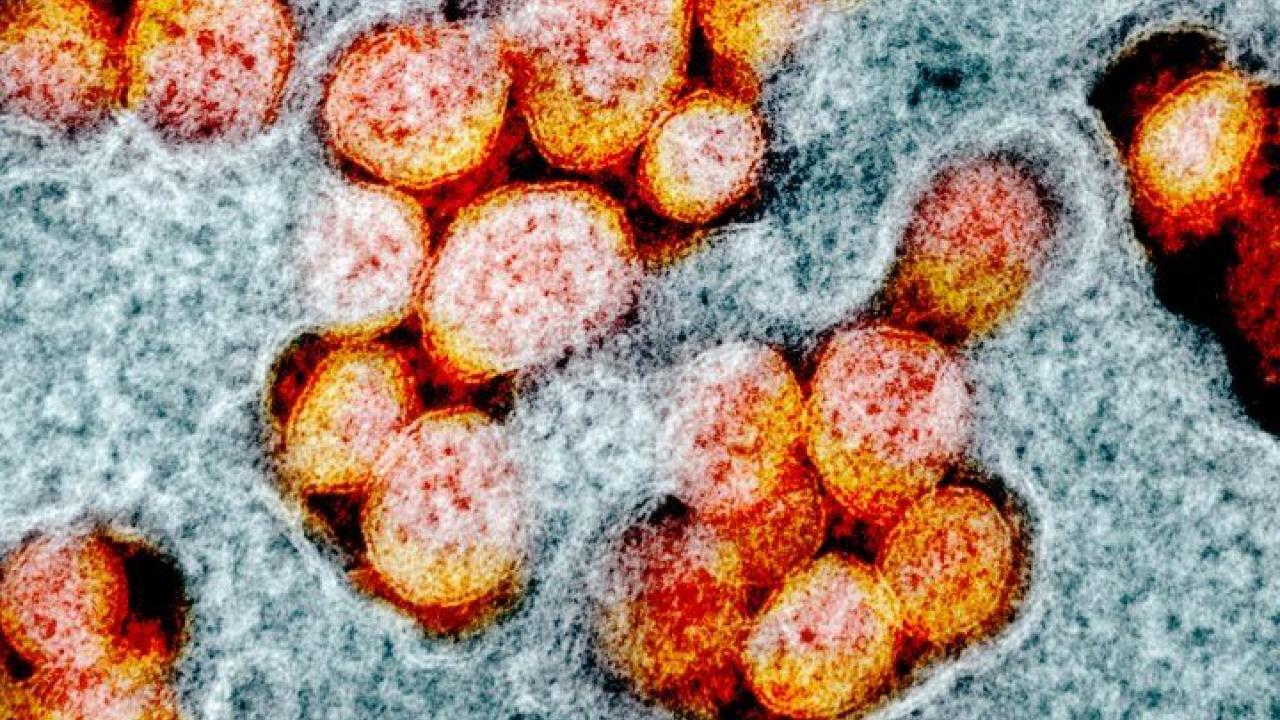
Plitidepsin was 27.5-fold more potent against SARS-CoV-2 than remdesivir, a drug that received FDA emergency use authorization in 2020 for the treatment of COVID-19, according to new research. Image by NIH
Scientists at UC San Francisco’s Quantitative Bioscience Institute (QBI) and the Icahn School of Medicine at Mt. Sinai (ISMMS) in New York have shown that plitidepsin (Aplidin), a drug approved by the Australian Regulatory Agency for the treatment of multiple myeloma, has potent antiviral activity against SARS-CoV-2, the virus that causes COVID-19.
In laboratory experiments reported in Science on Jan. 25, plitidepsin, a compound originally discovered in a Mediterranean sea squirt, was 27.5-fold more potent against SARS-CoV-2 than remdesivir, a drug that received FDA emergency use authorization in 2020 for the treatment of COVID-19. In addition, in two preclinical models of COVID-19, plitidepsin showed a 100-fold reduction in viral replication in the lungs and demonstrated an ability to reduce lung inflammation.
The studies were led by the laboratories of Nevan Krogan, PhD, director of the QBI, part of the UCSF School of Pharmacy, and Adolfo García-Sastre, PhD, professor of microbiology and director of the Global Health and Emerging Pathogens Institute at ISMMS.
In 2020, in response to the COVID-19 pandemic, Krogan, also a senior investigator at Gladstone Institutes, brought many UCSF labs together in the QBI Coronavirus Research Consortium (QCRG), which played a major role in the new research.
In a separate publication posted to the bioRxiv preprint server, the UCSF and ISMMS researchers, in collaboration with Greg Towers, PhD, and Clare Jolly, PhD, of University College London, show that plitidepsin has antiviral activity against the recently identified B.1.1.7 variant of SARS-CoV-2 which is comparable to the drug’s activity against the original SARS-CoV-2 strain. Additionally, they found plitidepsin to be about 100 times more potent than remdesivir in human epithelial cells.

Nevan Krogan, PhD
“From the start, our scientific investigations with the QCRG were to research where and how the SARS-CoV-2 virus was co-opting its human host to thrive, survive and become deadly,” said Krogan. “That research led us to a biologic pathway, the eukaryotic translation machinery, where inhibition of the pathway showed significant antiviral activity in cell culture. One of the promising agents that arose from our screen of drugs that inhibit this pathway was plitidepsin. Our preclinical data showing increased potency compared to remdesivir, and in conjunction with recent early clinical data showing promise in COVID-19 patients, as reported by the drug’s manufacturer, suggest plitidepsin should be further evaluated as a COVID-19 therapy.”